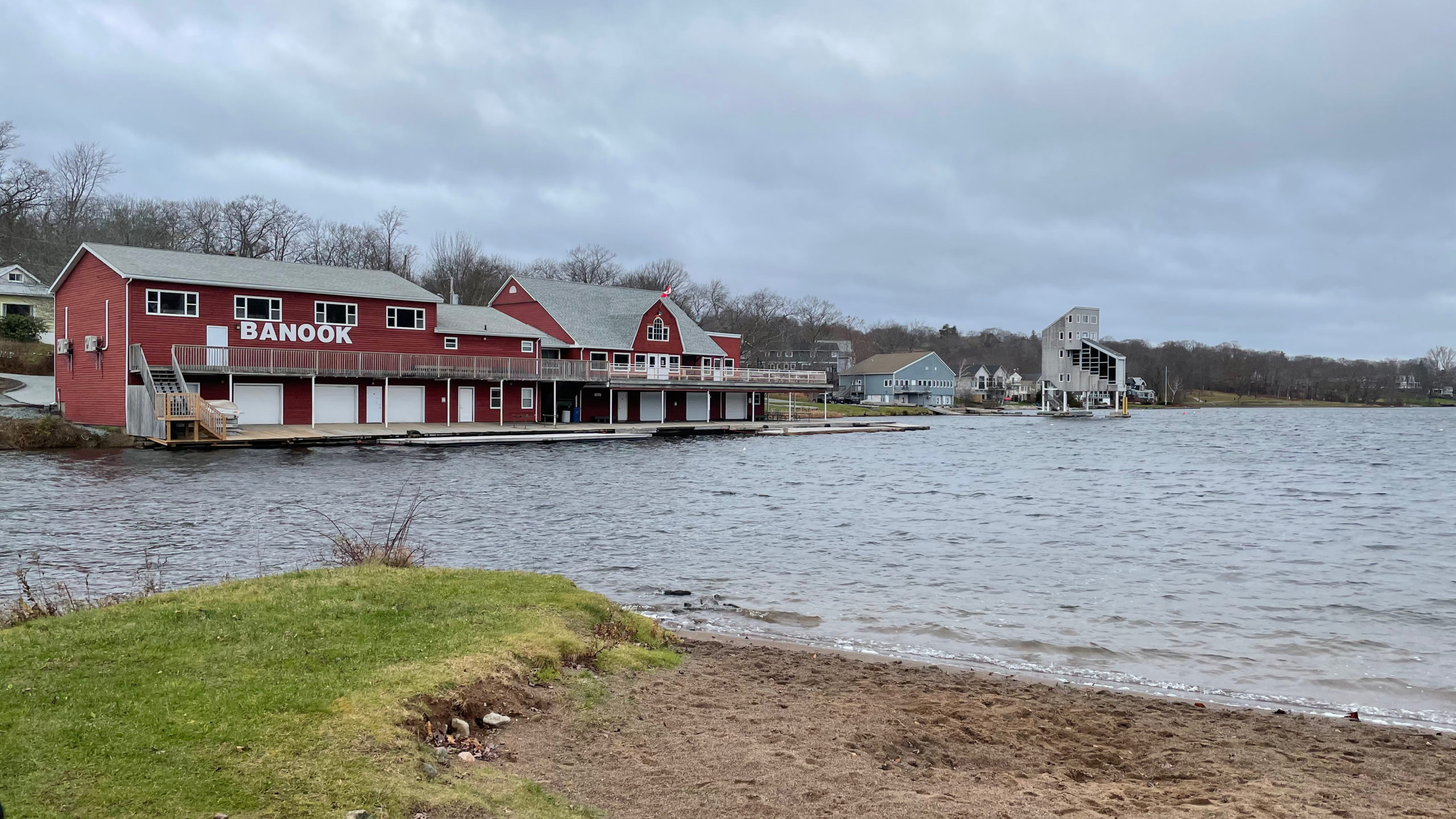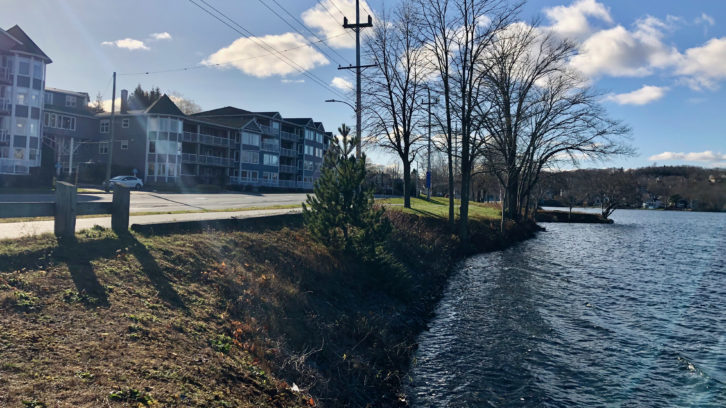Dartmouth is a city of polluted lakes. Will that change soon?
After years of complaints the city has clear solutions -- but they'll cost us

caption
The historic Banook Canoe Club seen from Lion's Beach ParkAfter years of wrangling between the province and the city, regional council is soon going to figure out how much money it’s willing to spend to clean up the lakes in Dartmouth.
The cleanup of the lakes has been stalled due to what Claudia Chender, MLA for Dartmouth South, calls “jurisdictional jockeying.” She explains that “the province (is) technically in charge of all lakes in the province, and their health. Like they’re in charge of waterways, municipalities are in charge of the urban environment.” This created a situation where, if citizens see a problem with the lakes, “they call the city and the city tells them to call the province and then the province tells them to call the city and then no one does anything.”
In spring 2019, a $150,000 study on Lakes Banook and Micmac commissioned by the city determined some causes of the pollution and presented some solutions. It found that the growth of underwater plants and the dangerous blue-green algae was caused by excessive run-off from commercial and residential development. The presence of some E. coli was due to animals and possibly from old septic tanks (testing found it was not coming from sewage pipes).
Coun. Sam Austin admits that “from a strict strict jurisdictional point of view,” perhaps it doesn’t make sense for the municipality to be the primary actor in the cleanup efforts. Related stories
“But here’s the thing: most of the causes of the problems in the lake all come from areas that are HRM’s jurisdiction,” the Dartmouth Centre councillor said in an interview.
Norman Steele, vice-president of the Oathill Lake Conservation Society, and the Environmental Chair for the Portland Estates and Hills Residents Association agrees.
“Because, yes, the province does, you know, have jurisdiction over the freshwater ways in Nova Scotia, but the municipality is the one that regulates the stormwater system,” Steele said in an interview. “They’re the ones that regulate the developments and how those developments are being approved and what mitigation measures are required … And they also are responsible for monitoring them.”
In the last few years the environmental issues with a number of Dartmouth lakes have increased — with more aquatic weeds and more blue-green algae. Local residents use the lakes for boating, fishing, swimming, and many other activities, but there’s concern that the environmental state of the lakes is putting that lifestyle in jeopardy.
“If you grew up in Dartmouth, the lakes are a super big part of your identity. Like our communities are all centred around the lakes,” Steele said.
Lake Banook, in particular, is an especially important lake for both locals and athletes from around the world.
“Lake Banook is not just a lake like any other. It is the international hosting venue for a lot of canoe/kayak events,” Austin said.
The lake was scheduled to host the 2020 North American Indigenous Games which were postponed due to the pandemic. It is scheduled to host the 2022 Canoe Sprint World Championships.
“If we lose that ability to host as a venue or it becomes less attractive, because it starts to get a reputation for being, you know, a dirty lake, that would not be a good thing for the city or for the province as a whole because this is an area where we punch above our weight,” Austin said.
The wildlife is also affected. Steele said that the underwater plants have grown so tall that on some of the lakes “that you can see ducks and things land on the surface of the lake and it looks like they’re walking on water.”
A lot of the issues are caused by the drainage of stormwater. In Lake Banook, for example, the drainage pipes that empty directly into the lake are visible. Steele suggests the addition of “a buffer, which means that the stormwater would go into some type of artificial wetland.”
Austin says the municipality may incorporate some of these measures in the repaving of Prince Albert Road, which runs alongside Lake Banook. The project is scheduled to begin next year.

caption
Section of Lake Banook that runs along Prince Albert Road. The road is set to be repaved next year.“There’s a potential to do an artificial wetland sort of thing at the corner of Prince Albert and Sinclair where we’ve got a big section of basically unused green space,” he said.
There are other simple fixes that Austin has proposed like cleaning the street more than twice a year or before a storm to decrease the contaminants that drain into the lake.
An important addition is the reinstatement of the lake monitoring program that was cut in 2012. The program was cut due to budget costs but Austin said that this time the cost of lake monitoring survived the “COVID chopping block” and was “one of the things that council put back.”
At a September council meeting, Austin put forward a motion to find out how much it will cost to implement some of the solutions as presented in the 2019 study on Lake Banook and Lake Micmac. It passed unanimously, and municipal staff will bring forward funding options for council as part of budget discussions starting this month.
“There’s a great quote out there about … if you want to see what a city’s true priorities are, don’t look at what it says, look to its budget,” Austin said.
“Well, come budget time, we have some concrete measures we can take to actually start to improve the quality of water in our in our lakes. Now it’s up to council to fund it.”
About the author
Preet Bhogal
Preet Bhogal is a journalist in Halifax and has a dog named Cole. He writes about politics, health, and social justice issues.

G
Gayle K. Gray